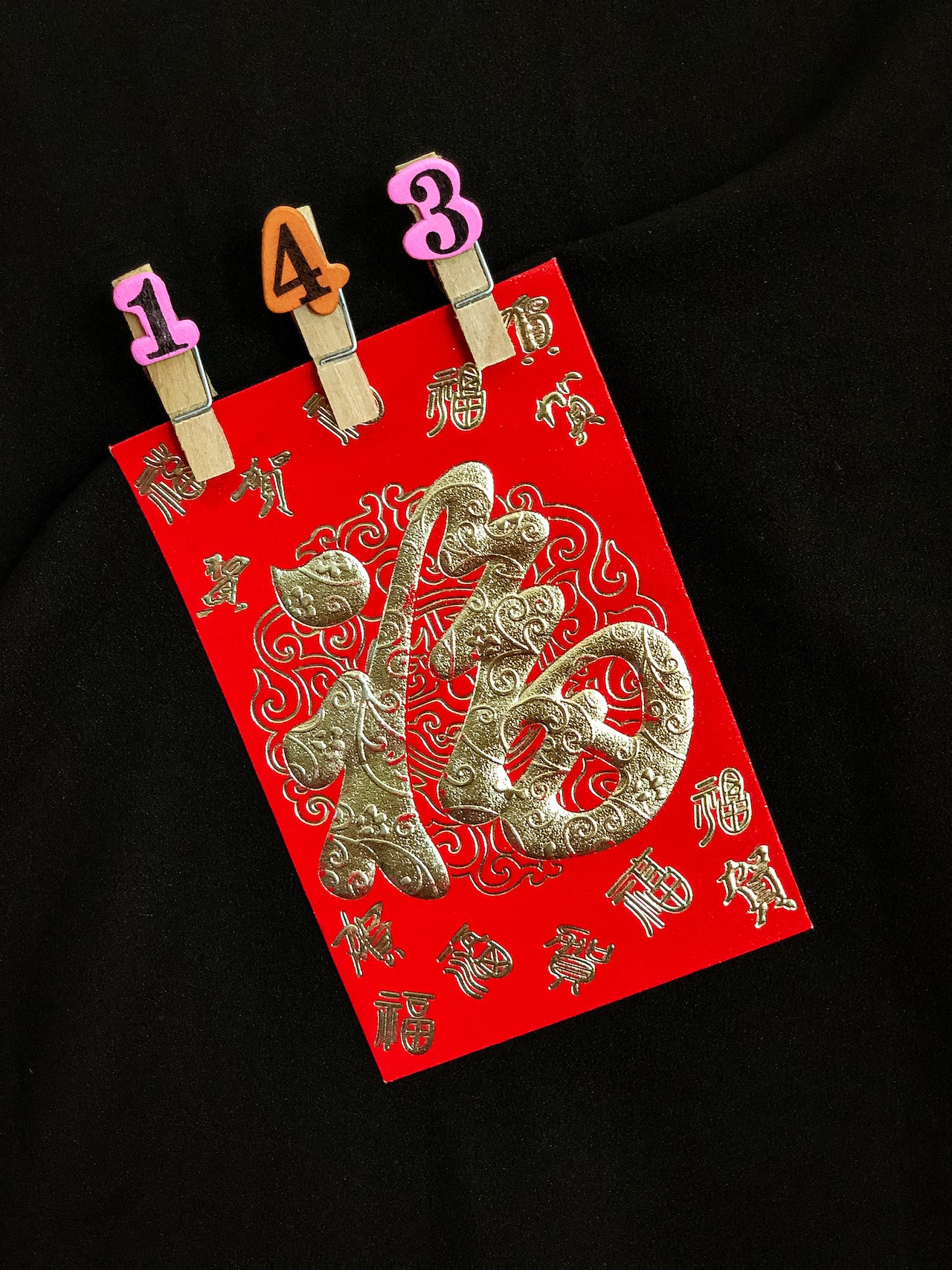The Science Behind Numerology
The significance of numbers and whether numerology is actually based in science are hotly contested topics. I'm hoping that this blog article will clear up any misunderstandings and that it will help people comprehend science behind numerology.
Author:Mia ThompsonReviewer:Matteo CaravetaJan 13, 2023113 Shares1.5K Views

The significance of numbersand whether numerologyis actually based in science are hotly contested topics. I'm hoping that this blog article will clear up any misunderstandings. and that it will help people comprehend science behind numerology.
Although numerology itself is not regarded as a science, the fundamental theories upon which it is based are based on scientific ideas. Most of these fundamental ideas are consistent with the fundamental rules of energy and vibration.
And Pythagoras was the one who initially understood and investigated the relationship between energy and numbers on a modern scientific level.
Science Behind Numerology
In reality, there has been evidence of a relationship between vibrational energy and numbers for thousands of years. All prehistoric cultures have a strong belief in the significance and power of numbers.
However, Pythagoras and his disciples created the first drafts of a more rigorous way of deciphering these meanings around 500 BCE.
I'll look at the relationship between science and numerology in this blog post. I'll also talk about how people have interpreted and assigned meaning to the energy and vibrations that numbers have.
The purpose is to give a greater comprehension of the underlying science of numerology.
The Various Schools Of Numerology
Numerology has numerous historical roots as stated by the researchers of StationZilla that covers this topics. The Babylonians and the Mayans are said to have been the first civilizations to assign meaning to numbers. There is evidence that numerology was used in its earliest versions in ancient Greece, India, China, Japan, and Europe.
Numerology has developed into several different areas as a result of this widespread and dispersed practice in various parts of the world. The type most frequently used in the West is the Pythagorean chapter. Numerology also has Chaldean, Kabbalah, Chinese, and Tamil variations.
Western/Pythagorean Numerology
The Greek mathematician Pythagoras and his followers undertook studies that led to the development of Pythagorean numerology. These investigations looked at the relationship between vibrations, energy, and numbers using string instruments.
After years of thorough analysis, the Pythagoreans came to the conclusion that everything could be defined and explained using numbers. These findings lend credence to the fundamental ideas of numerology's science.
Chaldean Numbers
The Chaldean schoolof numerology has roots in prehistoric Babylonian culture. This is thought to be numerology's earliest manifestation. The method uses the energy connected to numbers and connects them to the traits of people and occasions in their lives.
In the East, this area of numerology is still very popular.
Hebrew Numerology And Kabbalah
The Gematria system of ancient Hebrew numerology is used by the Kabbalah branch. This theory is based on the idea that everyone and everything is made out of energy. And all kinds of life are given and propelled by this energy.
This branch's primary method solely considers a person's birth name. It is thought that a person's birth name has a tremendous amount of energy and power and is not a coincidence.
Chinese Numbers
The Chinese emperor Wu is credited with creating Chinese numerology some 4000 years ago. It consists of the three numerology systems known as Western, Traditional, and Ki.
These programs examine a person's birth date to ascertain personality traits and significant life events using a numerical grid structure.
Indian/Tamil Numerology
Tamil numerology makes use of geometric shapes and Vedic squares to identify specific attributes and qualities of people. The Indians reasoned that each person is connected to three fundamental numbers.
These figures show how people perceive themselves, their surroundings, and their interpersonal interactions. They are identified by their dates of birth and mathematical computations based on the acoustic frequencies related to specific numbers.
Indian scientists and philosophers are both fascinated by the connection between numbers and the natural world.
There are numerous sequences, ratios, and key values that connect all living things to one another, space, and the cosmos. This link makes use of numerology's scientific foundation.
Quantities As Symbols
We now know that, for thousands of years, the vibrational energies and meanings associated with numbers However, why numbers? Actually, the response is fairly straightforward.
The "language" of numbers is the only culture, language, and belief system that is universal across all domains. As a result, it can be regarded as a language that everyone can comprehend.
Therefore, it makes sense that numbers are the preferred symbols for conveying information that goes beyond the bounds of our civilization.
The Fundamentals of Numerology,as you may have guessed, is the study of the significance of numbers. The science of numerology actually resides in the interpretationof the vibrational energy.
The significance of the numbers sheds further light on a person's personality, areas of passion, and life purpose.
Numerology is used to guide people through life and help them find their true calling. By doing this, numerologists hope to enrich people's lives with joy, tranquility, and abundance.
Since ancient times, people have understood the relationship between numbers, symbols, and vibrational energy. With the help of this understanding, people have asked the cosmos for advice and gotten it.
But how does science fit into all of this? Although the notions of modern science were foreign to these ancient civilizations, they had a basic understanding of energy.
Geometry, transcendental physics, metaphysics, and physics are all part of the science that underpins numerology. In actuality, numerology's methods are extremely similar to astrology's methods.
The ability to calculate and define the numbers and significance of a person's numerological chart is necessary for numerology.
Numerologists need to be able to understand and interpret the vibrational energy of the numbers and give them significance.
They are aware of how various numbers interact, combining forces to affect the meaning attached to them.
With their talent and insight, numerologists can figure out important things from a person's numerology chart, like how their life is likely to go.
Numerologiststhink that everything has a purpose and that everything is connected by numerological principles.
This contains both the day of your birth and the name you were given at that time. As a result, the starting point for all numerological calculations is your name or birthdate.
People Also Ask
Is Numerology A Real Science?
If the primary source of inspiration for a scientific theory appears to be a series of patterns rather than empirical findings, it may be referred to as "numerology."
The scientific community frequently employs this informal usage of the term, which is typically employed to disparage a notion as "dubious science."
Can Numerology Be Trusted?
When it comes to making important and tough decisions in life, numerology has consistently proven to be completely reliable. You could use the results of numerology to figure out when it might be best to start a new business or ask for a raise.
Is Numerology A Theory?
Numerology is the use of numbers to forecast the future or understand a person's personality. Numerology theory is based on the Pythagorean idea that all things can be described by numbers because they can all be broken down into numbers.
Conclusion
Even though you might not think of numerology as a science in the usual way, but there is some science behind numerology.
We can draw the conclusion that the fundamental building blocks of our cosmos and existence are energy and vibration. Additionally, they may be measured and comprehended using scientific disciplines like physics and astronomy.
This vibrating energy is present in everything in the universe, including numbers. Numerologists can decipher the significance of the energy present by using numbers.

Mia Thompson
Author
Mia Thompson is a versatile writer at Kansas Press, delving into a range of topics including news, spiritual exploration, astrology, and numerology. With a passion for delivering insightful and informative content, Mia's articles provide readers with valuable perspectives and thought-provoking insights into these intriguing subjects.
She is dedicated to creating content that resonates with readers and fosters a deeper understanding of complex topics.

Matteo Caraveta
Reviewer
In the heart of Rome, Matteo Caraveta was born under the influence of the number 9, a symbol of universal love and completion. His path into numerology was illuminated during a life-changing encounter on his 21st birthday, a date that numerologically signifies the beginning of a new cycle, under the mystical skies of Sedona, Arizona. This experience, marked by the convergence of powerful numerical energies, reshaped his destiny.
Matteo's numerology practice is enriched with the vibrational essence of numbers, particularly the harmonious number 2, symbolizing balance and partnership, which guides his consultations. His most profound moment came when he used the energy of number 5, the emblem of dynamic change, to navigate a client through a tumultuous career shift, leading them to a path filled with purpose and prosperity.
Now, Matteo Caraveta stands as a beacon of light in the numerical maze, guiding souls with the wisdom of numbers, where every consultation is a step towards understanding the universe's grand design. His journey embodies the transformative power of numerology, making Matteo not just a numerologist, but a navigator of life's numerical currents.
Latest Articles
Popular Articles

